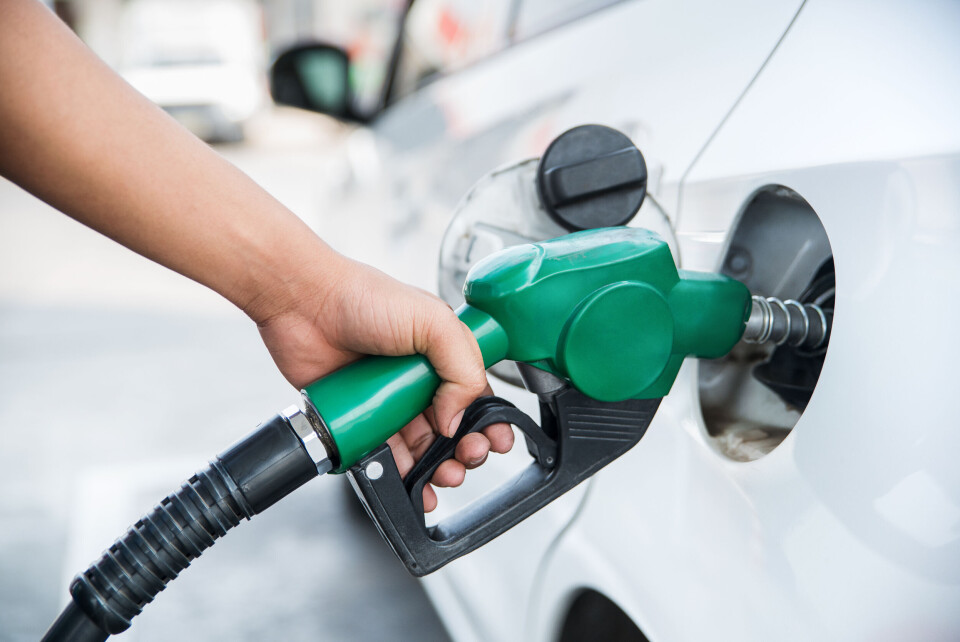-
New Paris-Jersey direct flight to launch this summer
Loganair route forms part of Channel Island’s tourism boost plan
-
Death of right-wing protester in Lyon sparks fears of further political violence
Quentin D, 23, died after reportedly being ambushed by far-left activists near site of political conference
-
Red flood alerts continue in south-west - and more heavy rain expected
Garonne river is particularly affected. French weekly weather forecast February 16 - 20
Petrol theft and ‘siphoning’ on rise in France as fuel costs soar
Businesses and individuals report more cases of people stealing fuel from tanks. Some areas are now selling petrol or diesel for around €2 per litre and rising

Cases of petrol thefts and aggression of fuel tanker drivers are growing in France as the price of fuel increases.
A litre of petrol or diesel now costs just under or around €2 (depending on fuel station and area), due to the impact of the war in Ukraine. Diesel has increased in price by 14 centimes in one week, making it more expensive than petrol.
Read more:Conflict in Ukraine: Petrol prices hit record highs in France
Olivier Gantois, president of the petroleum industries union l’UFIP (Union Française des Industries Pétrolières), told FranceInfo that petrol prices could even soar as high as €2.87 per litre in the coming months.
This is because the conflict in Ukraine has halted Russian exports and caused the price of Brent crude (the international barometer) to rise to US$129 per barrel, “which is already high”, said Mr Gantois. He relayed predictions that the price per barrel could rise to $140 by May 2022.
Each extra dollar of Brent crude translates to a 0.7 centime rise at the pumps.
If a barrel rises to $150, the cost at the pumps would be €2.17 per litre. In the currently-predicted worst-case scenario, should the cost of a barrel rise to $200, that would mean a €2.87 per litre cost at the pumps.
And while this worst-case currently appears unlikely for now, Mr Gantois said that costs will continue to rise, with a knock-on effect at the pumps.
Fuel tank siphoning
Already, the cost has led to a rise in reported fuel thefts in France, among individuals and businesses. In Yvelines, Le Parisien highlighted at least six reports of thieves siphoning from fuel tanks in recent days.
Police said that the perpetrators had been found, and appeared to be stealing the fuel for their own personal use, such as to “fill their Clio or their scooter”.
Unfortunately, however, police said that the victims of the theft were also generally people of modest means, who now, on top of the increase in fuel prices, must now pay for repairs to their fuel tank and cap, which costs an average of €100.
The perpetrators face prison time. One thief, who was caught in Landes in November 2021, went to jail for four months. He said he committed the crime due to financial difficulties.
A police officer in Yvelines told Le Parisien: “As soon as prices rise, we see a rise in thefts. It’s systematic.”
Aggression of fuel tanker driver
In Mantes-la-Jolie, Yvelines, a fuel tanker driver was assaulted by two men, after they tricked him into thinking his truck had a flat tyre.
He sustained some minor injuries but managed to escape with his tanker intact.
He had just left a depot in Seine-Maritime before the incident, leading investigators to believe that the perpetrators could have been following the tanker since then.
Business vehicles with 500-litre tanks
Businesses have also been hit by fuel siphoning, especially heavy users of fuel, such as road transporters and construction vehicles. These vehicles can have fuel tanks of up to 500 litres, making them an attractive option for desperate thieves.
In Seine-et-Marne, one young man was arrested as he was siphoning fuel from a truck’s tank when it was parked in an industrial zone, Le Parisien reported.
Some have even been caught using discreet pumps to speed up the theft. This applies especially to apparent “fuel gangs”, who can unite to attempt even larger thefts.
On February 25, one man was arrested in Val-d’Oise while in the process of stealing up to 20,000 litres of fuel directly from a pipeline.
This had led companies to install more measures to deter thieves, including video CCTV cameras in car parks or outside their depots, police said.
However, a boss at construction group la Fédération française du bâtiment (FFB) told Le Parisien that “it sometimes makes more financial sense to just let people help themselves” rather than risk them damaging expensive security equipment or smashing their way through anti-theft petrol tank devices.
Jean-Michel Percot, head of the company of the same name, similarly said: “We’ve decided not to install reinforcements on our tanks because they just break them. And if they break, replacing a tank is more expensive than just filling it up again [with fuel].”
However, he said: “Given the most recent news, we can expect to see a shortage of fuel, and very quickly too.”
Help with fuel costs?
Some major supermarkets in France (Auchan, Casino, Leclerc, Intermarché) have already said that they plan to have offers on fuel in coming weeks, or offer it at “cost price” in a bid to make it as affordable as possible for consumers.
Similarly, the government has suggested that it could offer a “fuel cheque (chèque carburant)” to the least-well-off households, in the same form as the inflation bonus of €100 that was paid to 38 million households over the winter.
In contrast, there currently appears to be no plans to reduce fixed fuel taxes, which form 52% of the cost per litre.
Related articles
New website to help 1.3m who have not yet had French inflation bonus
Cutting off Russian gas: What is France’s view and what consequences?
Inflation in France: what is under review to help households?
























